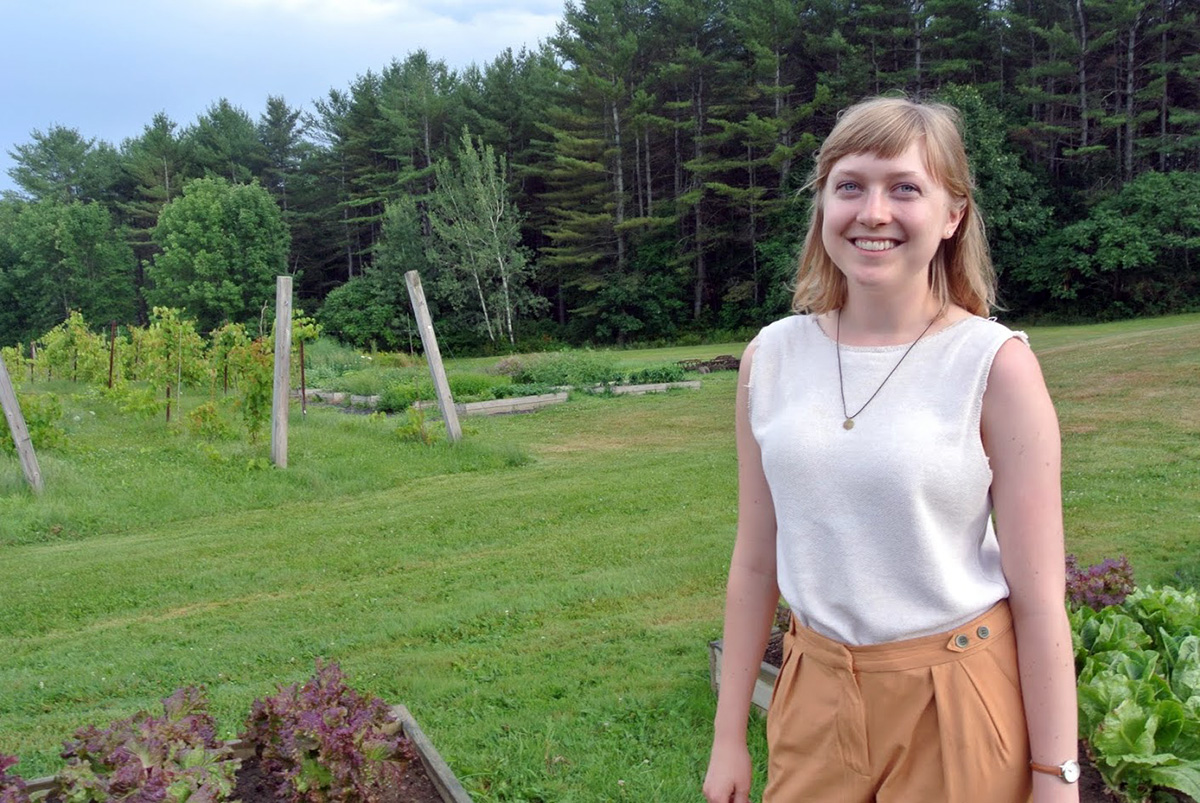Farewell from a Fellow: From Learning to Policy Shaping
Editor’s Note: The Bon Appétit headquarters team is bidding a sad but proud farewell to two of our Fellows after two years. (Read Caroline Ferguson’s last post.) Claire Kelloway (below) has been a fierce and passionate advocate for more sustainable food systems and for Bon Appétit teams all over the country, especially in the areas of the Farm to Fork program, the Real Food Challenge, and AASHE STARS.
I remember driving through the woods of Maine on my third week as a Bon Appétit Fellow, riding past the famous growing site for Johnny’s Selected Seeds on my way to tour a small tofu maker who was selling locally grown and crafted tofu to Colby College. This was after a week of visiting a local coffee roaster, a slaughterhouse, and a gristmill, and all I could think was “I cannot believe I get to do this — and that I get paid to do this.”
When I accepted the Fellowship, I knew I would be traveling to colleges, to raise awareness about issues in the food system and meet with student food organizers like myself. But early on, I quickly realized the Bon Appétit Fellows program is so much more. I never could have foreseen all the opportunities I would have to play a tangible role in the company’s mission, from establishing food recovery programs and enrolling new local farmers, to speaking in city hall and studying the logistics of local sourcing. Now that I am wrapping up my final projects and visits, I still feel the same sense of awe and gratitude that I did cruising through Kennebec Country that early August morning. Awe at all I have been able to be a part of, and gratitude for having been given this opportunity and trusted to take it on.
“From every person I learned something new that deepened my understanding of our complicated food system; I know that I will continue to absorb all these lessons long after my last day.
Over the past two years, this lifelong Minnesotan has traveled all across the uncharted territory of the East Coast, plus Ohio! From Skowhegan to Savannah, I have been fortunate to explore completely new landscapes and regional food sheds, and learn from almost every stakeholder in the food system along the way. I never would have guessed that working for a food service company would put me at the crossroads of so many sectors in the food system, but the Fellows program opened (often literal) doors into farms large and small, produce houses, processing plants, nonprofit offices — and, of course, many, many kitchens. From every person I learned something new that deepened my understanding of our complicated food system; I know that I will continue to absorb all these lessons long after my last day.
One of the remarkable things about the Fellows program is that I get to share all that I learn about our company and the food system with the students we serve. Over the past two years I’ve had the opportunity to speak to more than 1,200 people in classes, sustainability committees, club meetings, student government hearings, and more. I’ve been able to tie food systems issues into topics I never would have considered, like environmental economics, communications, geology, and even German philosophy. Seeing the look on student’s faces when they first learn that 40 percent of food in the U.S. is wasted, or helping a student organizer better understand what it really takes to make their mission a reality, has reinforced my belief in the power of transparency and of stories to create food systems change.
Which is why I am excited to continue meeting with food professionals and telling their stories as the lead researcher and reporter for the newsletter Food & Power, where I will shed light on how monopolization and economic concentration impact food producers, consumers, and entrepreneurs. When I think about the biggest barriers to creating a more regenerative and responsible food system, I am deeply concerned by the concentration of decision-making power among a few powerful players. However, working for Bon Appétit has given me hope in the ability to disperse this power and leverage consumers’ growing interest in food to grow a new, more equitable food economy.
Submitted by Fellow Claire Kelloway
